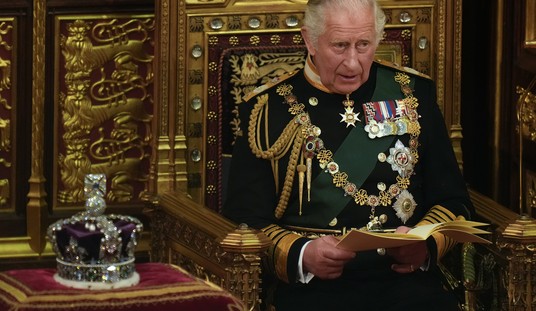Last night, the media reported that the US had accepted an offer of direct talks with Iran for the first time without preconditions. The timing could not have been worse, since people across America had spent the day commemorating the deaths of 3,000 of their countrymen at the hands of the kind of radical Islamists that run Iran. Was the administration hoping to bury this in a Friday-afternoon document dump?
The United States has decided to ignore Iran’s refusal to discuss its nuclear program and instead accept a vague Iranian plan for talks on security issues as the opening gambit to draw Tehran into real negotiation.
The effort to “test” Iran’s intentions, announced on Friday, came after Russian Prime Minister Vladimir Putin said his country is skeptical of the need for new sanctions on Iran, giving the Americans little choice but to treat seriously Iran’s latest offer.
Iran this week ruled out talks on its program, instead offering a five-page plan that it said would lay the groundwork for peace and stability in the region. The document, first posted Thursday on the Web site of ProPublica news service, made no reference to international demands that Iran suspend its efforts to enrich uranium, but did mention ending proliferation in nuclear weapons as well as a broad offer of dialogue.
Iran’s plan was disappointing but not surprising to U.S. officials, who nonetheless decided to take at face value the offer of a dialogue. Iran has insisted that the intent of its program is peaceful, but enriching uranium can be an element in building a nuclear weapon — though Tehran has not yet demonstrated it can enrich to a weapons-grade level.
This was a strange way to roll out the talks. Obama campaigned on offering this kind of direct diplomacy to Iran, so it’s not exactly a surprise to see this kind of strategy from the administration. One might have thought that the White House would hail this as a breakthrough, but on some other day than the eighth anniversary of 9/11. The late release of the agreement doesn’t help in that regard, either; it makes them look as though they know they have something to hide, rather than something to trumpet.
Aside from the remarkably tone-deaf timing, though, it’s not a surprise at all. Obama has three basic choices for policy change when it comes to Iran: go to war, increase the sanctions to attempt to change their behavior, or open direct negotiations. None of these are completely mutually exclusive, for that matter. Obama simply will not take the first option — no one can seriously think that Obama would declare war on anyone absent a military attack on the US — and Russia pulled the rug out from underneath the second option. China wouldn’t have supported more sanctions either. That meant either the status quo or an offer for direct talks.
Interestingly, this morning the Iranians offered a little give in their public position:
Iran’s foreign minister said Saturday that talks with world powers on his country’s nuclear program were a “possibility” — an apparent step up from Tehran’s offer this week to discuss only “global challenges” with the West.
Foreign Minister Manouchehr Mottaki said he welcomed talks with the U.S. and its partners, adding that “should conditions be ripe, there is a possibility of talks about the nuclear issue.”
The remarks came on the heel’s of a decision by the United States and partner nations to accept Iran’s proposal for talks — even though Tehran had said the nuclear issue was not on the table — and indicated Iran’s eagerness for a direct dialogue.
That’s much more give than the Iranians have ever publicly offered. Do they really want to put their nuclear program on the table? Of course not. The Iranians understand that this concession by Obama and other UNSC nations will not be popular in the West, especially in the US. They want to give Obama and other leaders a piece of paper they can wave in the air while promising “peace in our time,” in order to give them enough political cover to continue.
At this point, though, there doesn’t seem to be much opportunity for success through policy change. Obama won’t go to war, and in any event a war against Iran would be a very ill-advised affair; Iran is not Iraq or Afghanistan, except in the worst possible ways for terrain and fanaticism. The rest of the world won’t tighten sanctions enough to change Iran’s course. Talks will be fruitless and will likely lull the West while Iran completes its bomb and tightens its oppression, plus it has the effect of endorsing the regime that just rigged an election and triggered a promising uprising among the Iranian people. In this case, the status quo was the better option.








Join the conversation as a VIP Member